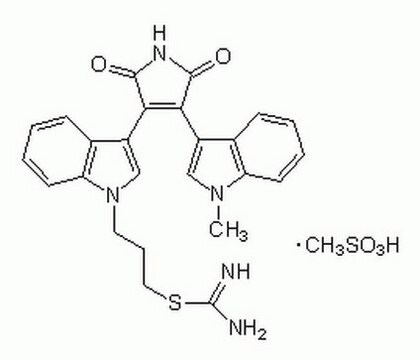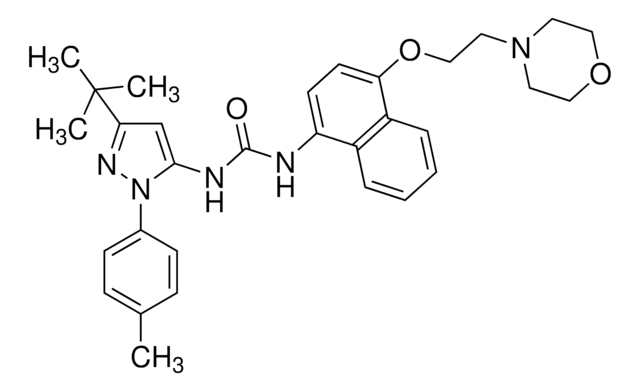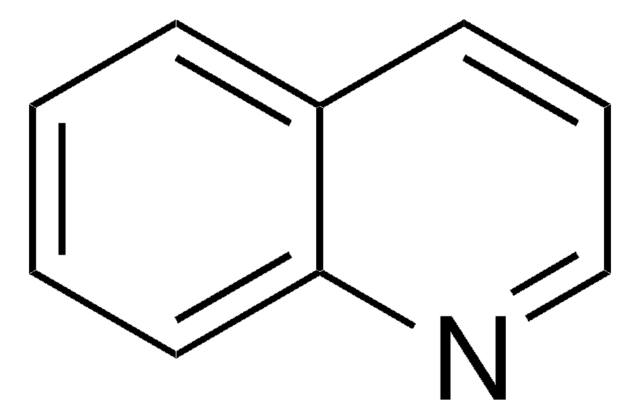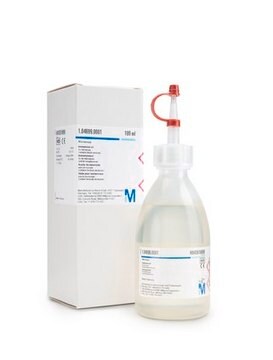371955-M
H-7, Dihydrochloride - CAS 108930-17-2 - Calbiochem
A broad-based, cell-permeable, reversible, ATP-competitive serine/threonine kinase inhibitor.
Synonym(s):
H-7, Dihydrochloride - CAS 108930-17-2 - Calbiochem, 1-(5-Isoquinolinesulfonyl)-2-methylpiperazine, 2HCl
About This Item
Recommended Products
Quality Level
Assay
≥98% (TLC)
form
lyophilized solid
manufacturer/tradename
Calbiochem®
storage condition
OK to freeze
protect from light
color
light yellow
solubility
water: 20 mg/mL
storage temp.
2-8°C
InChI
1S/C14H17N3O2S.2ClH/c1-11-9-16-7-8-17(11)20(18,19)14-4-2-3-12-10-15-6-5-13(12)14;;/h2-6,10-11,16H,7-9H2,1H3;2*1H
InChI key
OARGPFMFRLLKPF-UHFFFAOYSA-N
General description
Biochem/physiol Actions
MLCK
Warning
Preparation Note
Reconstitution
Other Notes
Jarvis, W.D., et al. 1994. Cancer Res.54, 1707.
Bergstrand, H., et al. 1992. J. Pharmacol. Exp. Therap.263, 1334.
Gimond, C., et al. 1992. Exp. Cell Res.203, 365.
Quick, J., et al. 1992. Biochem. Biophys. Res. Commun.187, 657.
Bouli, N.M., and Davis, M. 1990. Brain Res.525, 198.
Takahashi, I., et al. 1990. J. Pharmacol. Exp. Ther.255, 1218.
Schachtele, C., et al. 1988. Biochem. Biophys.Res. Commun.151, 542.
Kawamoto, S., and Hidaka, H. 1984. Biochem. Biophys. Res. Commun.125, 258.
Legal Information
Storage Class Code
11 - Combustible Solids
WGK
WGK 3
Flash Point(F)
Not applicable
Flash Point(C)
Not applicable
Certificates of Analysis (COA)
Search for Certificates of Analysis (COA) by entering the products Lot/Batch Number. Lot and Batch Numbers can be found on a product’s label following the words ‘Lot’ or ‘Batch’.
Already Own This Product?
Find documentation for the products that you have recently purchased in the Document Library.
Our team of scientists has experience in all areas of research including Life Science, Material Science, Chemical Synthesis, Chromatography, Analytical and many others.
Contact Technical Service








